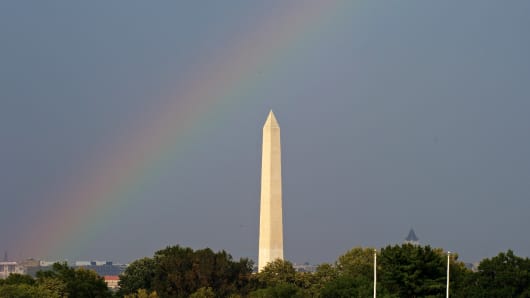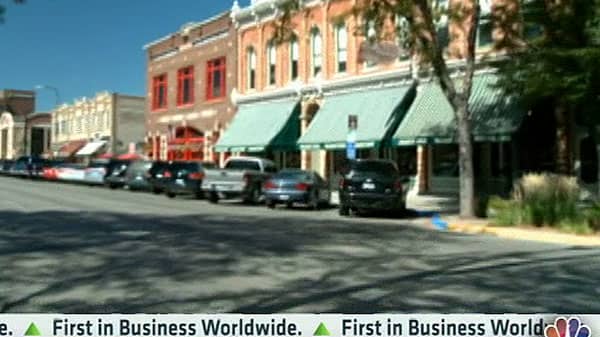President Calvin Coolidge famously said, "The chief business of the American people is business." These days, most people think Washington never got the message.
Our nation's capital is viewed as a town with one industry: government. Sure, there is government largesse and government contractors. Lawyers and lobbyists get their fill. And based on this, skeptics are not particularly shocked when studies regularly show the District of Columbia leading top-10 lists in job creation and housing values.
But a thriving center of private sector business—not so much.
(Read more: Cheap! Cheap! Nest in these states)
We longtime Washingtonians think, "Good! More opportunity for us." Because we know something is happening in and around the Beltway that ensures our city will be one of the great business opportunities not just in the U.S. but globally.
That's nothing new. Large private and publicly traded corporations have found their way to Washington for years. Multibillion-dollar juggernauts calling D.C. home include Danaher in manufacturing; Geico in insurance; Marriott and Hilton in hotels; Clark Enterprises and Federal Realty in construction and commercial real estate; Gannett and Discovery in media; Advisory Board, Corporate Executive Board and BNA in business research and information; and Mars in food products.
Those are only a fraction of the committed job creators and business builders in our backyard. The Carlyle Group remains not only one of the largest private equity firms in the world but finances multiple companies across the region that will enter these ranks.
(Read more: How does your state stack up?)
What is new is that Washington is becoming a magnet for technology and innovation. Building on a foundation laid by telecom, AOL and data giants such as MicroStrategy two decades ago, D.C. is attracting a new generation of entrepreneurs building opportunities at scale.
LivingSocial has been an early leader among daily deals sites. Blackboard highlights a series of hypergrowth companies in education, and Capital One has become one of the leading financial enterprises in the world and a master of data analytics. In fact, it has launched one of the first Innovation Centers on the East Coast to incubate e-commerce and finance start-ups.
Through his Revolution Group, Steve Case is putting hundreds of millions into disruptive technologies for the "sharing economy," and a new initiative, 1776, is one of several shared-office space and ecosystem incubators.
Outsiders miss three fundamental advantages of Washington. First, government's substantial historic role in the city means that traditional as well as modern industries establish structures here for lobbying and government sales. Being at the epicenter of national government allows companies to understand opportunities to expand operations or create disruptive enterprises in highly regulated fields. No surprise that network security, banking, health care and education enterprises have been and are being born here.
(Read more: A happy state can be a healthy state for business)




